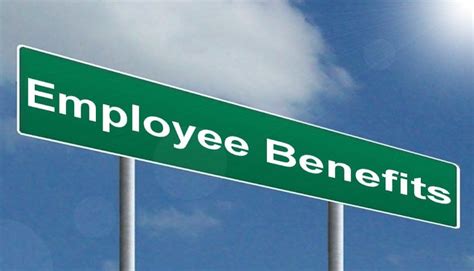Understanding Employee Benefits Upon Leaving

Leaving a job can be an overwhelming experience, especially when it comes to understanding your employee benefits. In this article, we will discuss everything you need to know about employee benefits upon leaving.
What are Employee Benefits?
Employee benefits are non-wage compensation provided to employees in addition to their regular salary or wages. These benefits can include health insurance, retirement plans, paid time off, and other perks.
Types of Employee Benefits
Health Insurance
Health insurance is a type of employee benefit that provides coverage for medical expenses. This can include doctor visits, hospital stays, prescription medications, and more. When leaving a job, it’s important to understand your options for continuing your health insurance coverage.
Retirement Plans
Retirement plans are a type of employee benefit that provides savings for retirement. These plans can include 401(k), 403(b), and pension plans. When leaving a job, it’s important to understand your options for your retirement savings, including rolling over your savings into a new account or leaving it with your former employer.
Paid Time Off
Paid time off is a type of employee benefit that provides paid time away from work for vacation, sick leave, and personal days. When leaving a job, it’s important to understand your unused paid time off and whether you are eligible for payment for any unused time.
What Happens to Employee Benefits When Leaving a Job?
Health Insurance
When leaving a job, you may be eligible for COBRA continuation coverage, which allows you to continue your employer-sponsored health insurance for a limited time. You may also be eligible for a special enrollment period to sign up for a new health insurance plan through the Affordable Care Act.
Retirement Plans
When leaving a job, you have several options for your retirement savings. You can roll over your savings into a new account, leave it with your former employer, or cash out your savings. It’s important to understand the tax implications of each option.
Paid Time Off
When leaving a job, you may be eligible for payment for any unused paid time off. However, this varies by employer and may depend on the reason for leaving the job.
What to Consider When Leaving a Job
Timing
Consider the timing of your departure and how it may affect your employee benefits. For example, if you leave mid-year, you may not be eligible for a full year of health insurance coverage.
Severance Pay
Consider whether you are eligible for severance pay and how it may affect your employee benefits. For example, your employer may offer to pay for your health insurance for a certain period of time as part of your severance package.
New Employment
Consider your new employment and whether you will be eligible for employee benefits. If your new employer offers similar benefits, you may not need to worry about continuing your previous benefits.
FAQs
What is COBRA continuation coverage?
COBRA continuation coverage allows you to continue your employer-sponsored health insurance for a limited time after leaving your job. However, you will be responsible for paying the full premium, which can be expensive.
Can I cash out my retirement savings when leaving a job?
Yes, you can cash out your retirement savings when leaving a job. However, this may not be the best option as you may be subject to taxes and penalties and will miss out on potential earnings from your savings.
What happens to my unused paid time off when leaving a job?
This varies by employer and may depend on the reason for leaving the job. Some employers may offer payment for unused paid time off, while others may not.
Can I continue my health insurance through the Affordable Care Act?
Yes, you may be eligible for a special enrollment period to sign up for a new health insurance plan through the Affordable Care Act when leaving a job.
What should I do with my retirement savings when leaving a job?
You have several options for your retirement savings when leaving a job, including rolling over your savings into a new account, leaving it with your former employer, or cashing out your savings. It’s important to understand the tax implications of each option.
What should I consider when leaving a job?
When leaving a job, consider the timing of your departure, whether you are eligible for severance pay, and whether your new employment offers similar benefits.
Overall, understanding your employee benefits upon leaving a job is crucial to ensuring you make the best decisions for your financial and personal well-being. By considering your options and seeking guidance when necessary, you can make a smooth transition to your next chapter.
